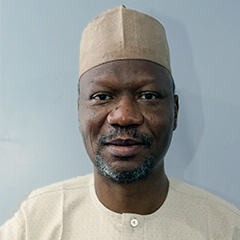Sen. Ovie Omo-Agege, the Deputy President of Senate, says the new Petroleum Industry Bill (BIP) will help drive the nation’s economy through added value and wealth from the oil and gas sector.
Omo-Agege said this at the Host Community Colloquium on the PIB in Owerri on Tuesday.
Represented by his Chief of Staff, Mr Otive Igbuzor, he said that it was unfortunate that the sector had been denied of the necessary regulations needed to activate huge potential to create value and wealth associated with the industry.
“But behind such dark cloud, is a silver lining. The good news is that the proposed Petroleum Industry Bill (2020) is coming to change all that.
“The two major planks of the Bill is to run the Nigeria National Petroleum Corporation (NNPC) as a business enterprise by the name NNPC Limited
“This is just as we have Saudi Aramco in Saudi Arabia; Petróleo Brasileiro S.A. (Petrobras) in Brazil; Equinor in Norway and Petronas in Malaysia and Establish regulatory agencies to serve as the regulatory agency of the industry,” he said.
According to him, the objectives of the bill are to promote economic growth through increased oil and gas production, promote economic growth through strong investments in midstream gas infrastructure to increase gas-based power generation and industries.
He said others included the promotion of the frontier for exploration, establishment of an effective acreage management system and creation of transparency and non-confidentiality mechanism.
“Also, transformed NNPC in a viable commercially-based and self-sustaining national oil company, create a strong regulatory framework with increased emphasis on midstream development and create an effective midstream and downstream licencing system.”
The deputy president of the senate said that promoting improved environmental measures and assisting host communities in petroleum operation to achieve their aspirations were part of the desired objectives of the PIB.
He said that the second aspect of the PIB that would help the growth of the industry was the creation of different regulatory bodies for the upstream midstream and downstream oil sector.
Omo-Agege said that the establishment of the infrastructure fund would also help in the development of the sector, the region and country at large.
“Specifically, the PIB will make a number of provisions for the creation of such gas infrastructure network.
“With the lofty objectives of the PIB and the intervention mechanisms for host communities; both existing ones and the ones expected to come with the bill, a lot of things are expected to happen that will beneficially affect host communities,” he said.
He called on all stakeholders and youths in the Niger Delta region to support ongoing efforts to ensure that the PIB was passed.
Hon. Henry Nwawuba, the Deputy Chairman, House of Representatives Committee on Niger Delta expressed regret that the PIB was yet to be passed in the country.
He said that in 2018, the house did all the technical work that ensured it passage but lamented that the presidency did not assent to the bill.
He however said the 9th assembly was determined to ensure its passage before expiration of its tenure.
“After this ninth assembly was constituted, I was among those that went to senate president to let him know the importance of the bill and the need for its speedy passage.
“It is embarrassing that some countries that came behind long after we commenced debate on our PIB, have signed into law their PIB, now growing their oil and gas sector,” he said.
He said that most of the issues of host communities underscored the need for the speedy passage of the bill.
He said that it was more urgent to pass the PIB than the electoral bill because of its importance to the nation’s development plans.
He urged participants to make valuable inputs at the colloquium as the committee looked forward to working with the outcome to ensure a good PIB for the industry.
Ealier, Mr Oke Epia, the Executive Director, OrderPaper, an advocacy initiative, said that the aim of the colloquium was to bring stakeholders together to brainstorm on the PIB that was before the national assembly.
“In 2018, we convened a similar HostCom Colloquium when it was the Petroleum Host and Impacted Communities Bill component of the disaggregated PIB as it then was.
“This colloquium has been designed as you may notice on the agenda to give us deep insights into the bill, offer comparative perspectives on beneficiate practices and allow us ample opportunity to deploy the understanding gained to place certain demands on the policy actors given with responsibility of reforms of the petroleum sector.
“In order to engage a robust conversation, efforts were made to invite representations from a diverse stream of actors and stakeholders some of whom we are glad and grateful have obliged us with their presence.
“I urge all of us to make the best use of this meeting as we intend to convey an adopted resolution here from to the National Assembly,” he said. (NAN)




